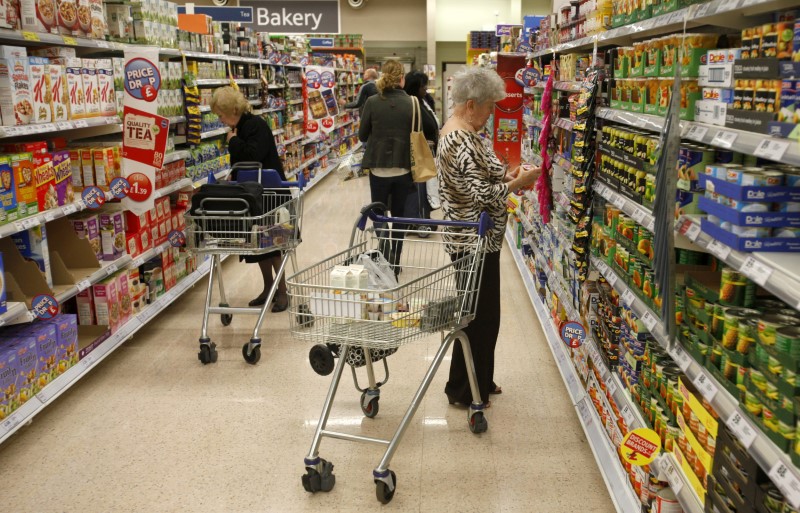LONDON (Reuters) - Households in Britain spend more than anywhere else in Europe, helping to drive the country's economy through its Brexit shock this year, global accountancy firm PwC said in a report published on Tuesday.
But the enthusiasm for British consumers to part with their cash has left them with little savings, raising the risk that they could scale back sharply if the economy takes a hit, PwC said.
The report said British household spending averaged 50,000 pounds a year, compared to around 41,000 pounds in Ireland and 35,000 pounds in France.
Around half of British spending went on essential items, such as housing and food, while the level of non-essential spending was also the highest in Europe.
But the British savings ratio of 2 percent of an average household's disposable income was low compared with France and Germany, the report said.
"While this is good news for businesses in the short term, it does make the UK potentially vulnerable to a sharp slowdown in household spending in the event of a future economic downturn that prompts higher precautionary saving, as happened in 2008-9," PwC said.

A rise in inflation in 2017, as predicted by the Bank of England, is likely to reduce household spending.